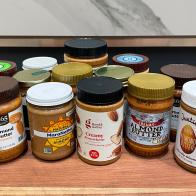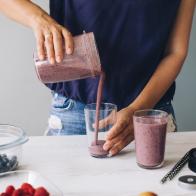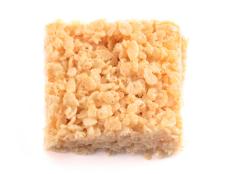Can Eating Before Bed Help You Get a Good Night’s Sleep?
The short answer is yes.
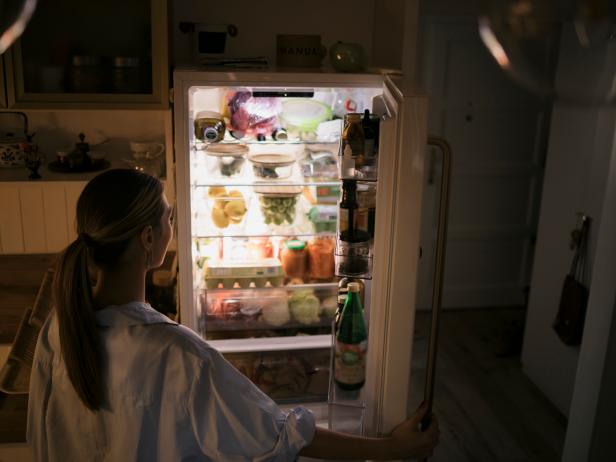
Brothers91/Getty Images
In the quest for a good night’s sleep, several factors come into play including our bedtime routines, our sleeping environment and even our diet. That’s right — the foods we eat can significantly impact our sleep quality, raising the question: Can eating before bed improve your chances of having a good night’s sleep? In short, the answer is yes, but it depends on several factors such as the type of foods consumed, existing health conditions and individual differences in metabolism and sleep patterns. Let’s take a closer look into the science behind sleep and diet.
Sleep is a complex process that is regulated by a variety of factors, including hormones like melatonin and neurotransmitters such as serotonin. These chemicals play an important role in the sleep-wake cycle and are influenced by the nutrients we consume on a daily basis.
Tryptophan: Tryptophan is an essential amino acid that our bodies can’t produce. It’s a precursor to serotonin which is a neurotransmitter that regulates our appetite, mood and sleep. Serotonin is converted into melatonin — the popular hormone responsible for controlling sleep-wake cycles. Foods rich in tryptophan help to increase serotonin and melatonin level, promoting a better night’s sleep.
Serotonin: Serotonin is known for its role in mood stabilization and general feelings of well-being. Research shows that higher levels of serotonin can help calm the brain, making it easier to fall asleep.
Melatonin: Melatonin, also known as the “sleep hormone” lets the body know that it’s time to prepare for sleep. It also helps to regulate the timing of the sleep-wake cycle. While melatonin supplements are popular, consuming foods that boost melatonin production naturally can be a very beneficial alternative.
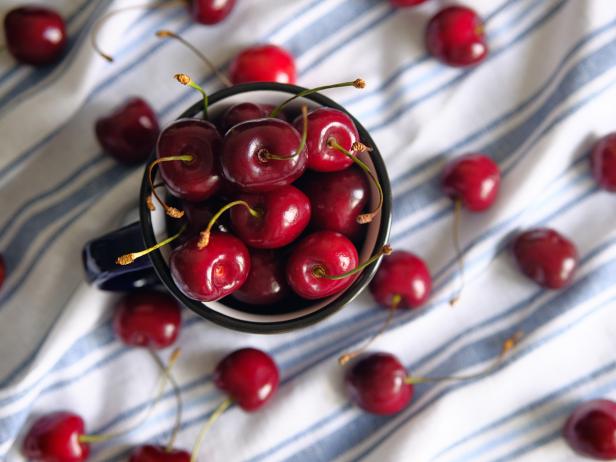
Aleksandr Zubkov/Getty Images
What Foods Might Help You Sleep?
Although a full meal isn’t recommended near bedtime, a light snack that includes the following foods may help to curb hunger and improve sleep quality due to their content of tryptophan, serotonin and melatonin.
Tart cherries: Tart cherries are a natural source of melatonin. Consuming tart cherry juice has been linked to improved sleep duration and quality.
Kiwi: Studies suggest that eating kiwi before bed can improve quality and duration, due to its antioxidant properties and high serotonin levels.
Nuts: Nuts such as almonds, walnuts and pistachios contain melatonin and magnesium, which is a mineral that helps regulate sleep.
Greek Yogurt: Greek yogurt provides an excellent source of tryptophan, which can satisfy late-night hunger and support sleep by boosting serotonin and melatonin production.
Turkey: Like Greek yogurt, turkey is high in tryptophan, which can help promote sleep by increasing the production of serotonin and melatonin in the body.
A Few Things to Consider
When choosing the right foods to eat before bed, it’s important to consider individual differences. Factors such as metabolic rate, existing health conditions and personal tolerance to different foods play a significant role. For example, individuals with a high metabolic rate may process food more quickly, potentially leading to different sleep outcomes compared to those with a slower metabolism. Similarly, those with health conditions like GERD (gastroesophageal reflux disease) might need to avoid foods that can trigger reflux, while people with diabetes need to be mindful of their blood sugar levels when selecting bedtime snacks.
Personal tolerance to specific foods also varies greatly. Some people may find that dairy products promote better sleep due to their tryptophan content, while others might experience gastrointestinal discomfort or lactose intolerance. Additionally, foods that generally promote sleep, such as nuts or turkey, might not be suitable for everyone due to allergies or dietary restrictions. Therefore, it’s important to consider your unique physiological and health needs when choosing bedtime snacks, and to experiment with different foods to determine what works best for your body and sleep patterns.
Bottom Line: Eating before bed can help to improve sleep quality, but it depends on the type of foods, the amount eaten and each individual’s differences and preferences. Choosing foods that contain a source of tryptophan, serotonin and melatonin has been shown to promote a better night’s sleep. However, this is not a one-size-fits-all solution. Pay close attention to your body’s responses and specific dietary needs to help you make mindful choices – ones that will support your journey towards a restful night’s sleep and benefit your overall health.
*This article was written and/or reviewed by an independent registered dietitian nutritionist.
Related Content:


















